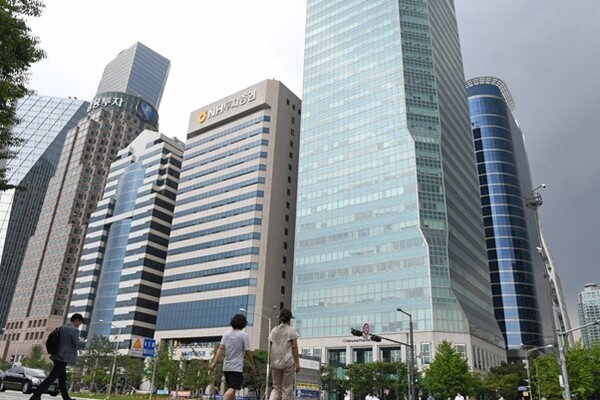Nine securities firms meet with financial authorities to address rising won-dollar exchange rate.

As the won-dollar exchange rate threatens to breach the 1,400 won level, financial authorities have been confirmed to have urgently summoned major securities firms to discuss exchange rate stabilization measures. This move stems from the assessment that explosive overseas stock buying by Korean retail investors is acting as upward pressure on the exchange rate.
According to the securities industry on Nov. 25, foreign exchange authorities including the Ministry of Economy and Finance, the Bank of Korea, and the Financial Supervisory Service held a closed-door meeting on the 21st, summoning foreign exchange officials from nine securities firms belonging to the Foreign Exchange Market Committee, including Mirae Asset Securities and Korea Investment & Securities.
It is unusual for authorities to seek cooperation from securities firms for exchange rate management. Typically, during periods of sharp exchange rate increases, it is common to request cooperation from commercial banks with high transaction volumes, the National Pension Service, or large export companies. However, securities firms have become a new target as Korean retail investors’ dollar demand has been identified as a major cause of exchange rate increases.
Indeed, Korean retail investors’ overseas stock buying spree has reached record levels. According to the Korea Securities Depository, as of Nov. 21, domestic individuals’ cumulative net purchases of overseas stocks amounted to $29.219 billion, which is 2.8 times last year’s annual net purchases ($10.545 billion).
What authorities focused on intensively in this meeting was the securities firms’ foreign exchange settlement methods. Securities firms currently use an integrated margin system to internally net customers’ buy and sell orders, then concentrate currency exchanges for only the net purchase difference right after the Seoul foreign exchange market opens at 9 a.m.
Authorities view this practice as causing dollar buying concentration in early trading hours and structurally pushing up exchange rates, and reportedly requested demand dispersion through the utilization of Market Average Rate (MAR) or expansion of real-time currency exchange.
However, securities firms are expressing practical difficulties. An official from a securities firm said, “From the securities firm’s perspective, considering the efficiency of currency exchange, it is advantageous to proceed with exchanges in the morning as we do now,” adding, “Otherwise, the timing of returning Korean won to customers would be delayed, ultimately leading to customer losses.”
The burden of building computer systems was also raised. Another securities firm official pointed out, “To implement such measures, we would need to build new computer systems, and rushing to create them could cause problems such as system failures,” and “With the introduction of 24-hour foreign exchange trading next year approaching, preparing alternatives in a short period is realistically difficult.”
Some in the industry also express concerns that switching to real-time currency exchange could make netting processing impossible, potentially transferring commission burdens to customers.


